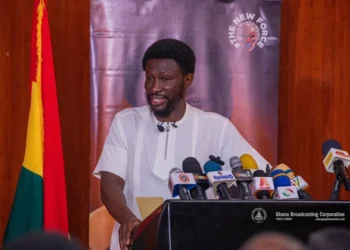The Founding President of IMANI Africa, Franklin Cudjoe, has called for legislative action to prevent “non-performing” politicians from receiving ex-gratia payments after leaving office.
After reports surfaced regarding such payments to outgoing government officials, Franklin Cudjoeexpressed his concerns over the payment of emoluments to politicians, particularly those classified under Article 71 of the Constitution.
He criticised the poor performance of some of these officials, arguing that they had overseen reckless borrowing that pushed the country into massive debt and worsened the economic situation.
In a post on X on January 2, 2025, Franklin Cudjoehighlighted the loss of the ruling government in the recent general elections as a key indicator of their underperformance.
He also lamented the state of the economy and the impact on ordinary Ghanaians.
“So, Parliament is discussing ex-gratia for Article 71 holders behind closed doors? They had better remind themselves that almost all the recipients performed abysmall, recklessly borrowed us into a debt iceberg, junked our economy, and pushed nearly a million Ghanaians into shackling penury and deep poverty. Ultimate scorecard: 38%,” He posted.
He further stated that a law be passed to prohibit politicians who have performed poorly from receiving ex-gratia payments, arguing that their performance does not justify such emoluments.
“We must pass a law that bans politicians who fail from getting such emoluments. Alas, everyone lives at the expense of the state. Hope John Dramani Mahamakeeps his word that he will cancel ex-gratia!” he added.
Franklin Cudjoe‘s comments come in the wake of reports about closed-door discussions in Parliament regarding ex-gratia payments for Article 71 officeholders.
These individuals include top officials such as the President, Vice President, Speaker of Parliament, Deputy Speakers, Members of Parliament (MPs), as well as the Chief Justice, justices of the Superior Courts, the Auditor-General, Ministers, Deputy Ministers, and members of the Council of State.










Discussion about this post